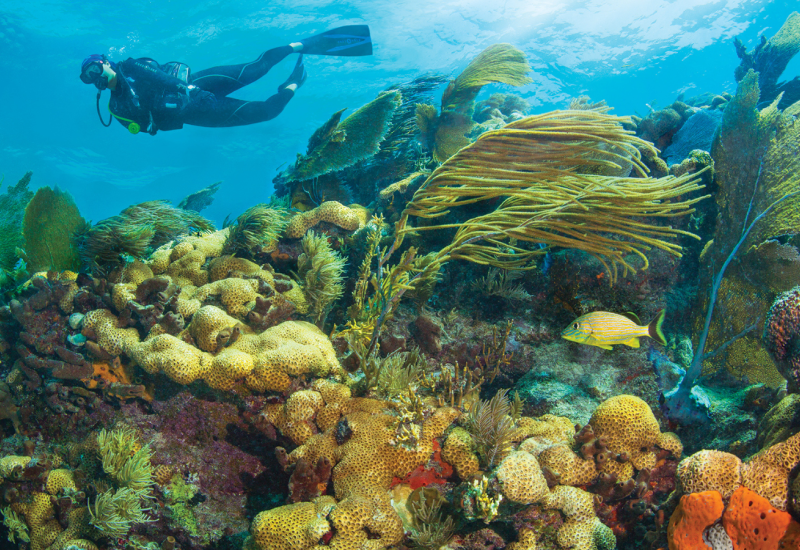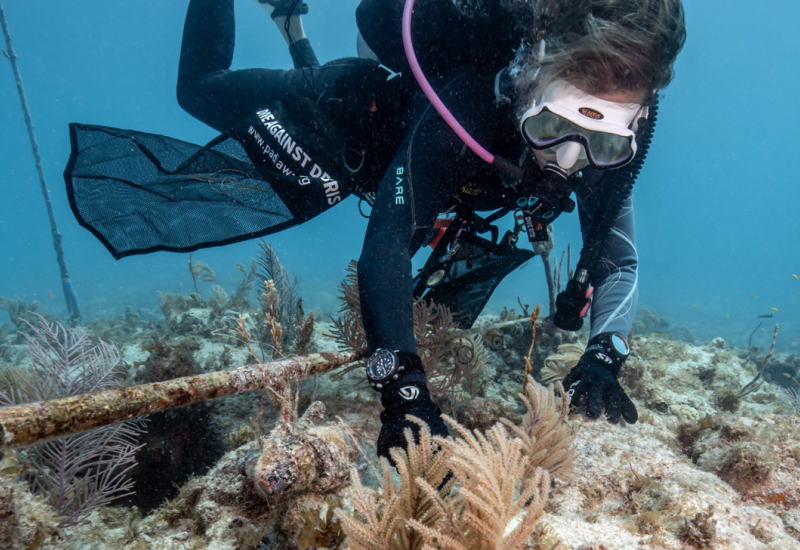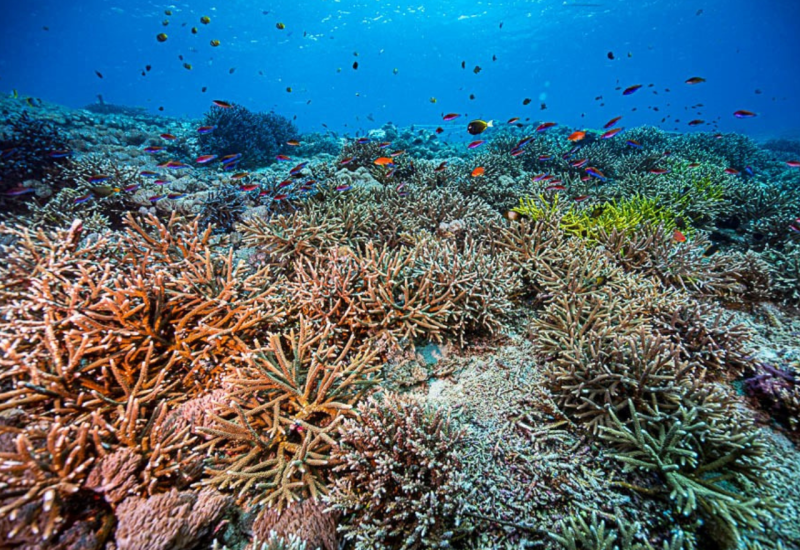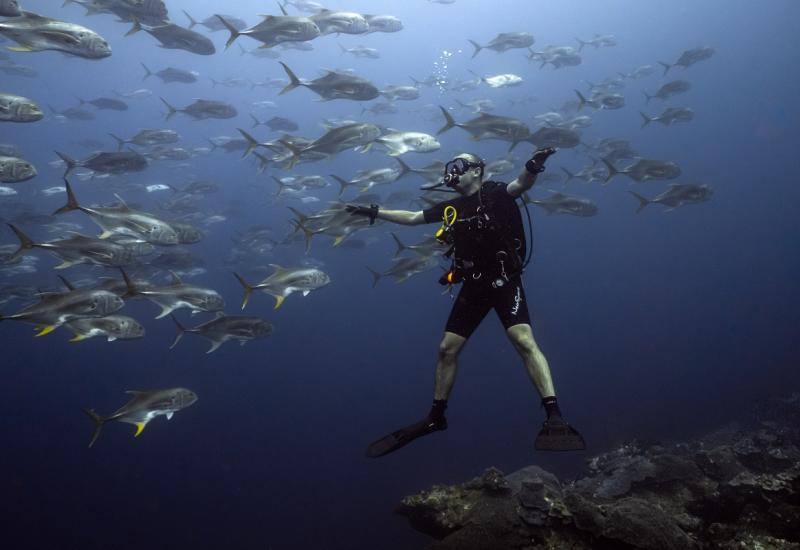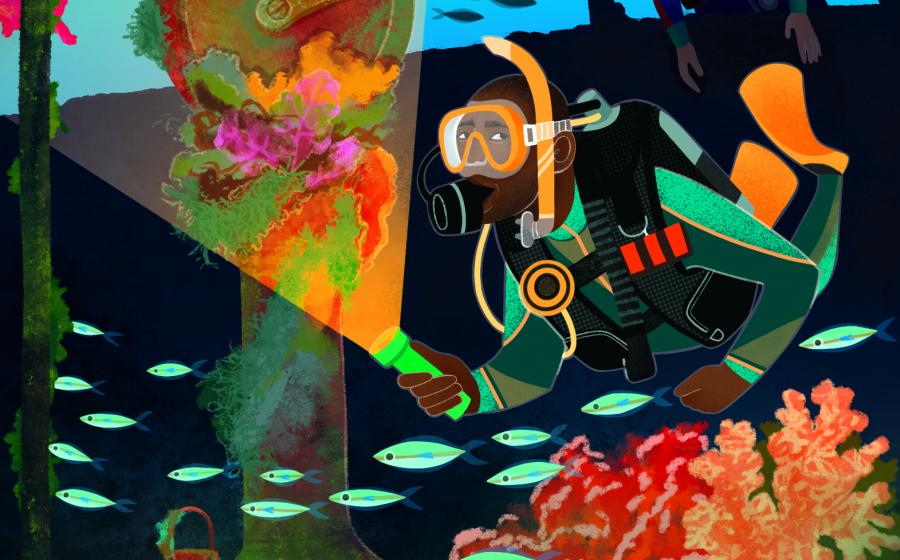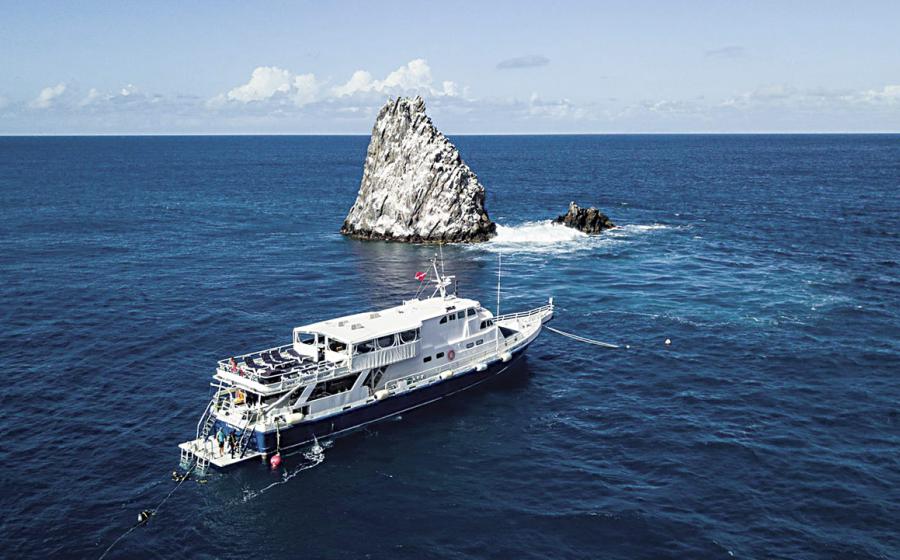Conservation Spotlight: Green Fins
Mission: “To protect and conserve coral reefs by establishing and implementing environmentally friendly guidelines to promote a sustainable diving and snorkeling tourism industry.”
HQ: Dumaguete, Philippines
Year Started: 2004
Connect: Instagram | Facebook | Twitter

Courtesy Green FinsNot only does Green Fins work with operators to enforce ocean-friendly practices, but they’ve also launched an e-course to help dive professionals lead more environmentally friendly dives.
Project:
If you’ve ever shared a charter with a diver who steps on or drags dangling equipment over coral reefs, moves marine life to get a better photograph, or likes to pocket sunken souvenirs, you’ll understand why the ocean needs Green Fins.
Green Fins, an initiative of the UN Environment Program, takes a unique conservation approach to managing sustainable marine tourism by addressing the negative environmental impacts associated with diving and snorkeling.
The initiative aims to protect and conserve coral reefs through the enforcement of environmentally-friendly guidelines for in-water and coastal activity, says Melissa Hobson, communications manager at The Reef-World Foundation, the international coordinating agency of Green Fins. The initiative works with operators in nine countries and counting, including bucket-list destinations like Indonesia, Palau and Thailand.
Their approach encompasses three main aspects. First, they’ve developed an environmental code of conduct for diving and snorkeling activities — the only internationally recognized set of environmental standards for the industry. When operators become Green Fins members, they agree to abide by the code of conduct and make sure their divers do, too. It includes practices like hosting regular underwater cleanups and enforcing a “no-touch” policy for all reef activity, and there’s an involved assessment system to measure compliance and provide certification for divers and operators who abide by the code.
Second, they support the development and strengthening of environment-focused regulations and policies by providing local and national government representatives with a proven and replicable approach to address marine tourism impacts.
Third, they have strategic outreach and education programs to involve dive and snorkeling centers, as well as governmental agencies, in environmental efforts. These programs focus on empowering local groups to make positive, lasting change within their own communities.

Courtesy Green FinsGreen Fins takes a unique conservation approach to managing sustainable marine tourism by addressing the negative environmental impacts associated with diving and snorkeling.
Get Involved:
Take the Green Fins Dive Guide e-Course:
Not only does Green Fins work with operators to enforce ocean-friendly practices, but they’ve also launched an e-course to help dive professionals lead more environmentally friendly dives.
Professionals leading and guiding divers have the ability to positively influence behavior and help protect marine life on every dive, Hobson says.
Divers with a rescue-level certification or higher can take the free online course to learn about coral reef biology and the importance of reefs; the Green Fins approach; and techniques like how to plan and brief a more environmentally friendly dive, how to be a positive role model in the water, and how to address any negative interaction with the reef.
“If you can manage your divers and prevent them causing damage,” Hobson says, “then you are helping protect coral reefs one dive at a time.”

Courtesy Green FinsWhen operators become Green Fins members, they agree to abide by the code of conduct and make sure their divers do, too. This includes hosting hosting regular underwater cleanups and enforcing a “no-touch” policy for all reef activity.
Donate:
“Your support will result in a measurable reduction in the impact of diving and snorkeling activities to coral reefs,” Hobson says. This makes the reefs better fit to survive when faced with even greater threats, such as overfishing, pollution and climate change.
One-hundred percent of donations go directly to Green Fins’ work, helping the organization to continue engaging and working with local communities, governments and NGOs face-to-face.
Just a $30 donation would pay for an hour-long meeting (including travel, food and the cost to print meeting materials) with up to 20 people, Hobson says. By being able to provide the knowledge needed for people to protect their reefs, she says, “your money makes real changes.”
In addition to monetary giving, you can also support Green Fins by sporting one of their shirts or tote bags, which are printed with fun, ocean-positive messages.
Book Your Dive Trip with a Green Fins Member:
Green Fins has certified operators in many of the world’s top dive destinations, including countries in the Coral Triangle. If you’re planning a trip to a country they work in, be sure to book with a Green Fins member in the area.
“By booking with an active Green Fins member, you’re choosing a dive shop from a network of 500+ dive operator members working together to make sustainable diving the norm by reducing their environmental impact,” Hobson says. “Dive and snorkel operators who follow the code of conduct enhance the positive environmental and social impact of their business and as the initiative grows, we hope more operators will also want to join the network to reduce their own environmental impact.”

